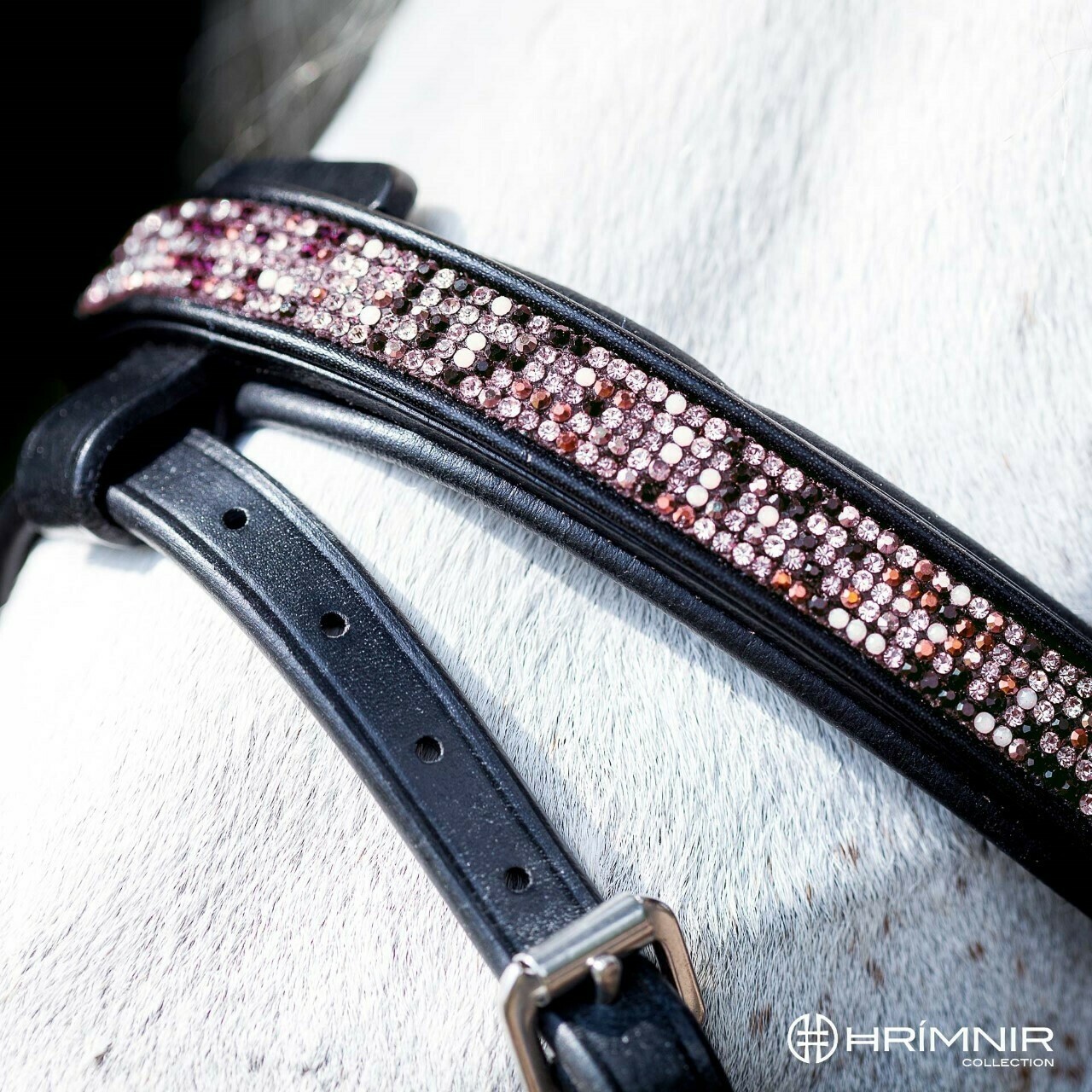
Hrimnir Flash Noseband Sunset Rosa
Padded flash noseband, with removable flash strap. The noseband is well padded under the horses chin for more comfort. The flash strap threats through a “T” shaped loop that is placed in the noseband. The “T” shaped loop can also be removed easily for the noseband to be used as normal cavesson.
The embedded rhinestones in the noseband give this flash noseband a special and elegant look.
Features
- Removable flash strap
- Thick soft padding around nose and jaw for extra comfort and better distribution of pressure
- Slim design for light comfort
- High quality leather infused with extra oil for durability and softness
- Stainless steel buckles with rolls for easy adjustment
- Buckle guards to prevent pinching
- Embedded coloured rhinestones: Sunset Rosa - inspired by Icelandic nature
- Colour: Black
- Size: Icelandic
Size chart
| Size | cm |
in |
| Cavesson (min - max setting) |
56 cm - 70 cm | 22" - 27.6" |
| Flash (min - max setting) |
48 cm - 61 cm | 18.9" - 24" |
| Strap around head (min - max setting) |
81.5 cm - 97.5 cm | 32.1" - 38.4" |
Correct Adjustment
A cavesson should fit around the nose about one to two fingers width underneath the cheekbones. Make sure that the cavesson rests on the strong part of the horse’s nasal bone. The crownpiece should lie behind the headstall at the horse’s poll to avoid the cheekpiece sliding toward the eyes.
Both the cavesson and the flash strap should be closed in such a manner that you can easily fit 1-2 fingers under it at the nasal bone. The horse is supposed to be able to open its mouth a little and to be able to chew the bit unrestricted. Bear in mind that a noseband is only used to restrict excessive opening of the mouth and consider that the horse’s soft nostrils compress as the noseband is tightened. During exercise, the nostrils flare to allow more air intake and the noseband can constrict breathing if tightened too much.
Advice from Hrimnir
For young horses we recommend using a drop noseband instead of a cavesson. In youngsters, the molars at the sides of the jaw are a lot bigger compared to the skull during growth. Often, you can see or feel the upper and lower molars bulging out through the cheeks like two ridges along the side of the head. Since the cavesson closes around that area of the head, it is likely to press the soft cheeks towards the molars when pressure is put on the noseband. Especially young horses that are still learning to carry the bit correctly can occasionally brace against the noseband. This could cause lesions on the inside of the cheeks.

